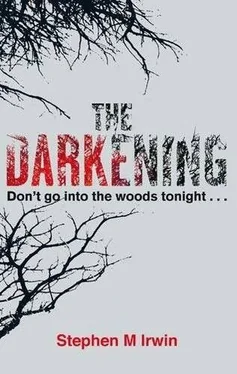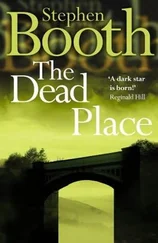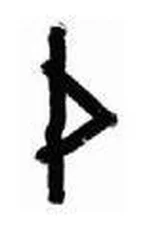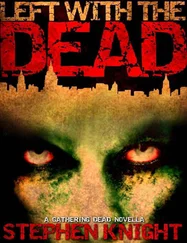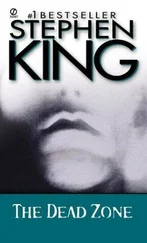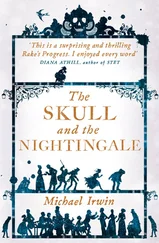Stephen Irwin - The Dead Path
Здесь есть возможность читать онлайн «Stephen Irwin - The Dead Path» весь текст электронной книги совершенно бесплатно (целиком полную версию без сокращений). В некоторых случаях можно слушать аудио, скачать через торрент в формате fb2 и присутствует краткое содержание. Жанр: Триллер, на английском языке. Описание произведения, (предисловие) а так же отзывы посетителей доступны на портале библиотеки ЛибКат.
- Название:The Dead Path
- Автор:
- Жанр:
- Год:неизвестен
- ISBN:нет данных
- Рейтинг книги:5 / 5. Голосов: 1
-
Избранное:Добавить в избранное
- Отзывы:
-
Ваша оценка:
- 100
- 1
- 2
- 3
- 4
- 5
The Dead Path: краткое содержание, описание и аннотация
Предлагаем к чтению аннотацию, описание, краткое содержание или предисловие (зависит от того, что написал сам автор книги «The Dead Path»). Если вы не нашли необходимую информацию о книге — напишите в комментариях, мы постараемся отыскать её.
The Dead Path — читать онлайн бесплатно полную книгу (весь текст) целиком
Ниже представлен текст книги, разбитый по страницам. Система сохранения места последней прочитанной страницы, позволяет с удобством читать онлайн бесплатно книгу «The Dead Path», без необходимости каждый раз заново искать на чём Вы остановились. Поставьте закладку, и сможете в любой момент перейти на страницу, на которой закончили чтение.
Интервал:
Закладка:
Nicholas stacked the books to one side as he pulled them out. There were three books left. He lifted aside The Curse of Machu Picchu, and stopped. Beneath was a book unlike all the others. It was a slight staple-bound thing with a thick paper cover in jaundice yellow; in the center of the cover was an etching of the Tallong State School main building. The title read: Tallong State School- 75 Years-1889-1964.
Nicholas felt the pulse in his neck beat stronger. He flipped open the book.
The contents were broken into three chapters: the first twenty-five years, then 1914 to 1939 and 1940 to 1964. Within the chapters were sprinkled black-and-white photographs of principals, of buildings being erected, of a governor’s visit, and, of course, photos of classrooms full of students, seated in four rows of eight or so, their teachers smiling dutifully from their midst.
Was his father’s photo in here? Nicholas flipped through to the end of the book. As he did, a page slipped out and slid like a feather to the dark earth. He picked it up. No, not a page. It was a newspaper clipping, yellow and crisp: a truncated advertisement for Hotpoint clothes dryers. He turned the clipping over. As he read the headline of the small article, he felt his face go cold.
“Boy Missing-Police Seek Information.”
It stated that a twelve-year-old boy named Owen Liddy had left his Pelion Street home on a Saturday morning; he was to catch a train into Central Station and visit a model airplane exhibition at the city hall. His mother became worried when he hadn’t returned by four. People attending the exhibition were interviewed; none recalled seeing a boy fitting Liddy’s description. Police were inviting any information from the public.
Nicholas reread the article. Then he noticed the last page of the Tallong schoolbook was dog-eared. He picked it up and opened to the marked page.
It showed a photograph of the 1964 seventh-grade students. A grinning girl in pigtails held a pinboard with the class name: 7C. But it was the face of a short, freckled boy third along in the second to last row that Nicholas stared at. The face was circled in dark lead pencil. He slid his eyes down to read the caption below the photograph: “Left to right: Peter Krause, Rebecca Lowell, Owen Liddy…”
Nicholas stared at the clipping for a long moment. It was unlikely that his father knew the boy-Donald Close would have been in his late teens in 1964.
A boy went missing, and Donald Close thought it was odd enough a disappearance that he kept the article. Kept it for nearly ten years, until he himself had disappeared from his family’s life and broken himself in two when his sliding car was sliced open by a poorly marked concrete road divider. But he left it, thought Nicholas. He left it with his books.
He left it for us.
He folded the clipping and slipped it into his pocket. Outside, the morning had turned gray and the air in the garage was cold.
He hurriedly put the suitcases back on the overhead planks, eager to be out of this room that was as uncomfortably quiet as a grave.
N icholas let himself back in the house. The hall was quiet, and the air was freezing.
“Suzette?”
He rapped on her bedroom door, opened it. Her bed was made, her suitcase open on a chair under the window. From underneath the house came a low thrumming. His mother’s pottery wheel: the electric hum of industry.
Halfway back down the hall, the walls took on a heavy tilt and Nicholas lurched. As he steadied himself, two large drops of sweat fell on the timber floor. He was feverish.
He fetched a change of clothes and went to the bathroom. In the bottom drawer of the vanity he found a half-empty box of aspirin and popped four in his mouth and felt them fizz on his tongue. Then he stripped off and turned on the shower.
As he showered, he chewed and took a half-mouthful of water, swallowing the bitter soup. His eyes slid down to his right foot and the scar: a faint line of pale skin where his sixth toe had been removed.
From his first job out of college-dish pig at the Kookaburra Grill-he’d saved every spare cent toward the elective surgery, and a lucky commission to design a logo for a new chain of wheel alignment garages brought his war chest to the required three thousand dollars. He booked himself in for outpatient surgery, had the offending appendage removed, spent a week recovering, then went out to the Lord Regent Hotel to find a girl to lose his virginity to, choosing the soon-to-be-unsatisfied Pauline McCleary. But every time he’d showered or bathed in the seventeen years since, his eyes had been drawn to his right foot, just to confirm that the deformity hadn’t grown back.
As he looked at the jagged white line, into his mind sprang the image of pale scars in dark wood: the marking scratched with a blade into the stock of Gavin’s rifle. Why had he hidden it from Suzette? And why hadn’t he told her that same mark on the health food store door had been the very one on the dumb, round woven head of the dead bird? Something had stopped him. Now, under the steaming water with the aspirin starting to work, he realized why. She has children. Telling Suzette might somehow bring the danger latent in the mark closer to Nelson and Quincy.
Nicholas turned off the taps.
Now he had a piece of new information that he’d exhumed from his father’s musty suitcases in the garage. He’d come into the house ready to tell Suzette about the child who went missing in 1964, but now he was glad she was out.
Don’t tell her. Keep her safe and send her home.
As he dried himself, his head began to throb again. Missing children. Dead children. Confessing murderers. Dead murderers. A strange mark.
Tristram touched the bird, but it should have been you.
As he dressed, Nicholas made a decision.
He would go to Gavin Boye’s funeral.
S uzette waved down a young waiter with a very nice bum and ordered her third long black with hot skim milk on the side.
A notepad with a page full of newly written notes was open in front of her, alongside a small pile of stapled cost projection reports, their margins crammed with her comments, all of which were now lined through. With one hand she clicked on icons on the laptop screen, shrinking her address book, restoring her mailbox, opening an accounts summary spreadsheet, highlighting days in her diary. In her other hand was her mobile phone; on the other end was Ola, her PA, a blocky and unattractive girl with a voice that was as lovely as her face was not. It was Ola’s good phone manner and skill at mail merging that got her the job.
Suzette was pleased. In the last hour and a half she’d concluded most of a day’s business, and the strong coffees removed most traces of her mother’s awful porridge from her tongue. She asked Ola to send out a tender to a few architect firms, and confirmed she’d be back in Sydney in a day or two. Then she rang home. Bryan answered.
“Hello?”
“Hello yourself. What happened to ‘Hello beautiful wife, I miss you and can’t bear another hour without you’?”
“Oh, hey gorgeous! Uh, yeah… the caller ID is down.”
Suzette frowned. “Down?”
“Nelson found my screwdriver set and did a bit of exploratory surgery on the handset. This is an old phone I found downstairs. I think it may have been used to convey the terms for the Treaty of Versailles. It’s got a spinny thingy.”
“Rotary dial?”
“I think you’ll find in telecommunications circles it’s called a ‘spinny thingy.’ ”
“Okay, Captain Hilarious. Why isn’t Nelson at school?”
Her husband chuckled. He sounded much more than a thousand kilometers away. “You won’t like this.”
“Try me.”
“He didn’t want to go.”
Suzette took a breath and told herself not to get snarky.
Читать дальшеИнтервал:
Закладка:
Похожие книги на «The Dead Path»
Представляем Вашему вниманию похожие книги на «The Dead Path» списком для выбора. Мы отобрали схожую по названию и смыслу литературу в надежде предоставить читателям больше вариантов отыскать новые, интересные, ещё непрочитанные произведения.
Обсуждение, отзывы о книге «The Dead Path» и просто собственные мнения читателей. Оставьте ваши комментарии, напишите, что Вы думаете о произведении, его смысле или главных героях. Укажите что конкретно понравилось, а что нет, и почему Вы так считаете.
